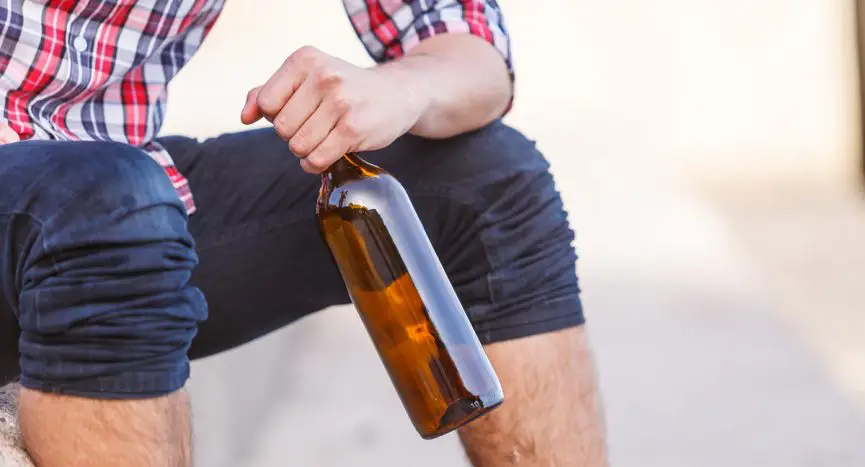
For those with substance abuse disorders such as alcoholism, there are many reasons why drinking may seem like a good option.
One of the most popular reasons may be to deal with stress, or even to drown out depression. But coping with depression by using alcohol can be a dangerous cycle, as one disorder often worsens the other disorder. When two disorders feed off and affect one another in this way, it is called a co-occurring disorder.
In order to understand the relationship between depression and alcoholism, you must first understand what a co-occurring disorder is and how it works.
What Is A Co-Occurring Disorder?
A co-occurring disorder, also sometimes referred to as a dual diagnosis, is what it is called when a person has both a substance abuse disorder and a mental health disorder. Substance abuse disorders include drug and alcohol addiction and dependency. Mental health disorders can range from depression to bipolar disorder to anxiety.

It's time to get your life back.
If you are struggling with addiction and co-occurring mental health, our expert team is here to guide you every step of the way. Don’t wait— reach out today to take the first step toward taking control of your life.
In 2014, according to the Substance Abuse and Mental Health Services Administration, approximately 7.9 million adults in the United States had co-occurring disorders.
Co-occurring disorders can be difficult to diagnose because substance abuse can sometimes overshadow symptoms of mental illness, or the symptoms of both may be confused. This may mean that sometimes, both disorders are not acknowledged and/or treated. The Substance Abuse and Mental Health Services Administration states, “Co-occurring disorders can be difficult to diagnose due to the complexity of symptoms, as both may vary in severity. In many cases, people receive treatment for one disorder while the other disorder remains untreated. This may occur because both mental and substance use disorders can have biological, psychological, and social components. Other reasons may be inadequate provider training or screening, an overlap of symptoms, or that other health issues need to be addressed first. In any case, the consequences of undiagnosed, untreated, or undertreated co-occurring disorders can lead to a higher likelihood of experiencing homelessness, incarceration, medical illnesses, suicide, or even early death.”
Still, it is possible to diagnose both disorders. Sometimes, while receiving treatment for addiction, mental health symptoms will worsen. This is because often, people use substances to cover up signs of mental illness or to escape from it. When those substances are taken away, signs of mental illness, like depression, may rise to the surface.
How To Treat Co-Occurring Disorders
Often, co-occurring disorders are best treated through integrated treatment, which means treating them as one unit rather than treating each separately. This is because treating each disorder separately will not help the other to improve. When it comes to depression and alcoholism, according to Psychology Today, “Nearly half of people in treatment for alcohol addiction exhibit co-occurring depression. And of people treated for major depressive disorder, nearly 40 percent will struggle with alcoholism at some point in their lives. Not only do these two challenges tend to happen together, but there’s also strong evidence they may actually create each other. Depression makes addiction; addiction makes depression. If you treat one without treating the other, the challenge that remains can cause a relapse of the other—alcoholism can flare depression, or after addiction treatment, depression can lead to alcohol relapse.”
In order to best address and treat both disorders—in this case, depression and alcoholism—they need to be treated at the same time, in the same place and by the same people.
Treating Depression And Alcoholism
In order to treat both depression and alcoholism in a person, both aspects have to be examined and understood. The first step in treating this co-occurring disorder is to look at a person’s history, meaning looking back at their relationship with alcohol over the years, as well as gathering an understanding of how long depression has been a factor.
For some, symptoms of depression will go away once they take away alcohol and enter treatment. This is because alcohol could be the reasoning behind the depression. But for others, as they step into sobriety and recovery, their depression will worsen because their self-medication (alcohol) has been taken away.
If the latter is the case, the type of depression must then be determined. There are different types of depression, such as major depression, bipolar disorder, and subsyndromal mood disturbance, and knowing which type someone is struggling with is vital when it comes to developing a treatment plan. The same is true of their relationship with alcohol. It is important to determine whether they abuse alcohol or are dependent upon it.
Once these aspects have been determined, a professional can put together a treatment plan to confront both disorders together. This may mean cognitive behavioral therapy, or medication, and in some cases both. According to the Journal of Psychiatry and Neuroscience, “Psychosocial and psychotherapeutic approaches — always provided in conjunction with pharmacologic therapy — include cognitive–behavioral therapy, which has proven effective for both depression and alcohol dependence, and the general strategies of motivational interviewing, which maximize the chances of lasting results.”
In short, it is possible to treat both alcoholism and depression, once they are both understood separately.

